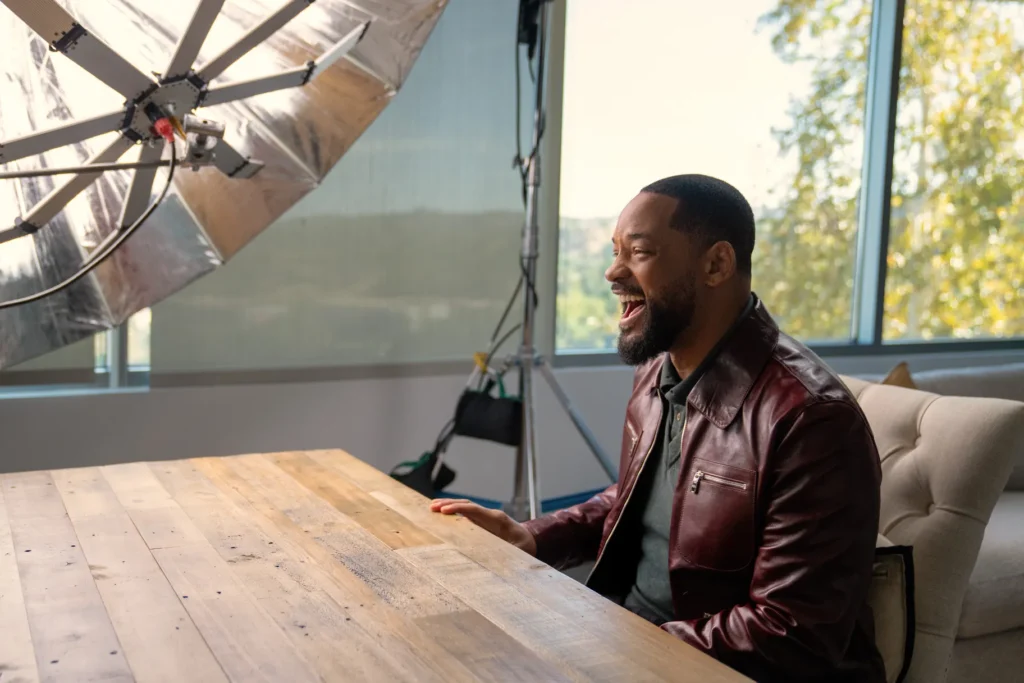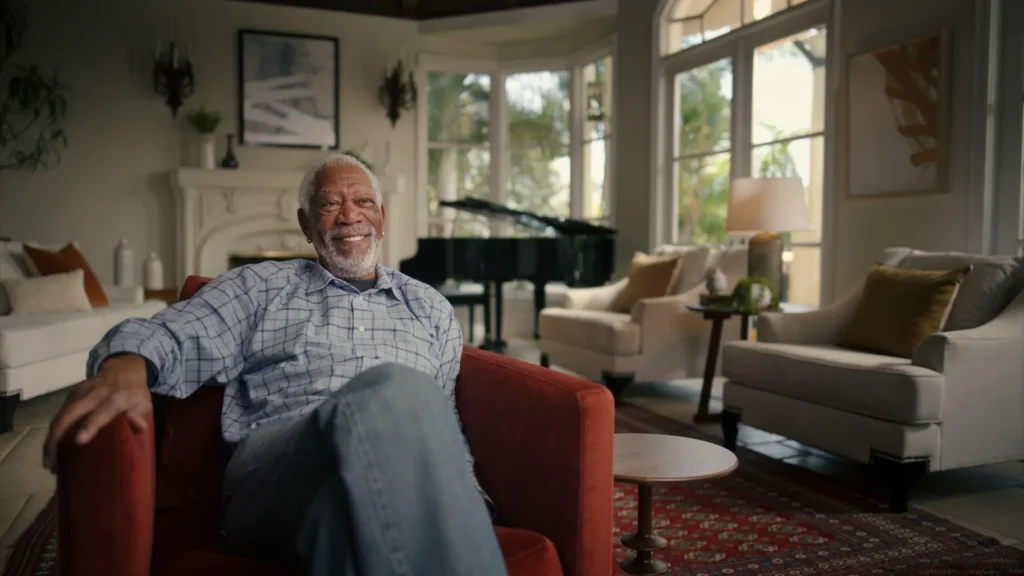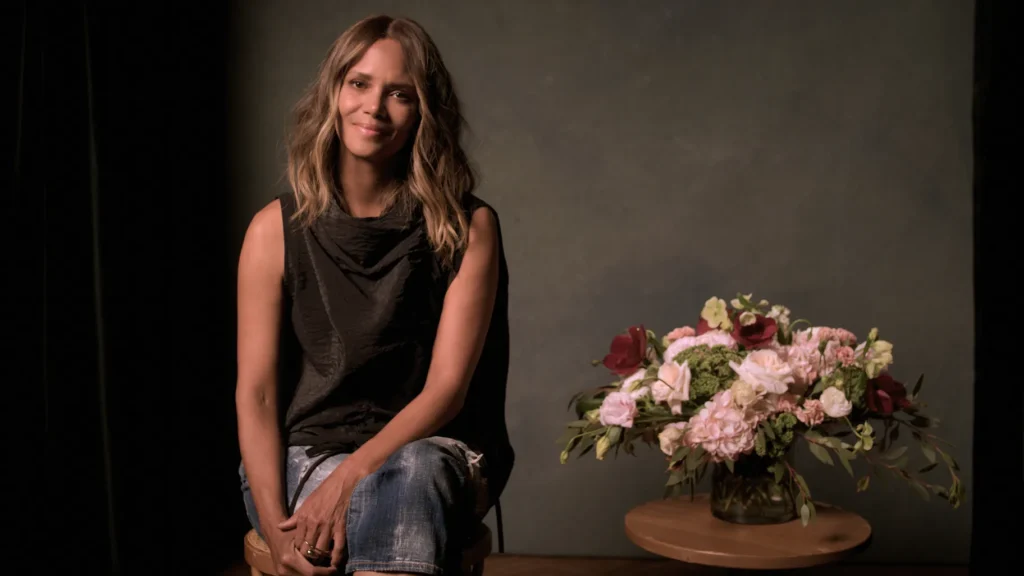What it takes for Black actors and actresses to be No. 1 in Hollywood
Press Play with Madeleine Brand | KCRW
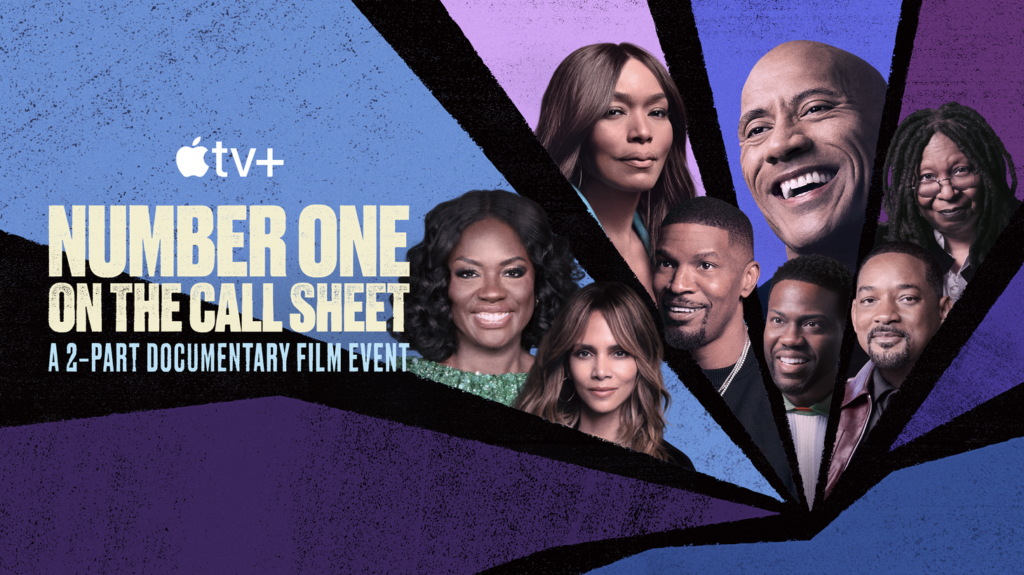
A rare club in Hollywood: those who’ve been “No. 1 on the call sheet,” meaning the one who usually gets the biggest role and the most money for a film. The Black actors and actresses who’ve achieved that status are the focus of a new Apple TV+ documentary, Number One on the Call Sheet. The first part, directed by Reginald Hudlin, features male actors like Denzel Washington, Morgan Freeman, Eddie Murphy, and Will Smith. The second, directed by Shola Lynch, is about women such as Viola Davis, Angela Bassett, Whoopi Goldberg, and Halle Berry.
Will Smith particularly wanted to be a global star when Hollywood believed films with Black actors wouldn’t work overseas. In the documentary, he says, “It was Arnold [Schwarzenegger], Bruce [Willis], and Sly [Stallone], and I walked up to them, and I was like, ‘Hey, look, I don’t mean to interrupt y’all, but I want to do what y’all do. What’s the secret? I know you know something that other people don’t know.’ And Arnold said, ‘If you want to be a movie star, you never be a movie star if your movies are only successful in America. Your movies must be successful everywhere on Earth.’”
Hudlin says Smith was a rapper from Philadelphia who had the talent and willpower to do movies with worldwide appeal, and he was confident that studios would promote them as if he were a white actor.
Hudlin adds, “All these people are change agents. We were very deliberate to talk to people from different generations who work in different genres of film, because we need Lawrence Fishburne … Kevin Hart … Morgan Freeman. … They’re all fighting the same war on different fronts.”
Did women express the same goals of global prominence? “You have to look at it in different ways,” Lynch says. “And for Black women in our society, when often we are dismissed as not the lead or as the lowest-ranking … that you find your way, and you see where you are. But you also make sure that you’re working towards your No. 1 on your call sheet.”
In the film, Viola Davis points out that what’s available for, say, Meryl Streep is not available for her: “It is hard to get a job, no matter how much intention you have to say, ‘This is a type of role I want next time, don’t call me unless you have that role.’ A lot of those roles, especially for us, I’m 58, I’m a dark-skinned Black woman, even if I were light-skinned, really, those roles don’t even exist.”
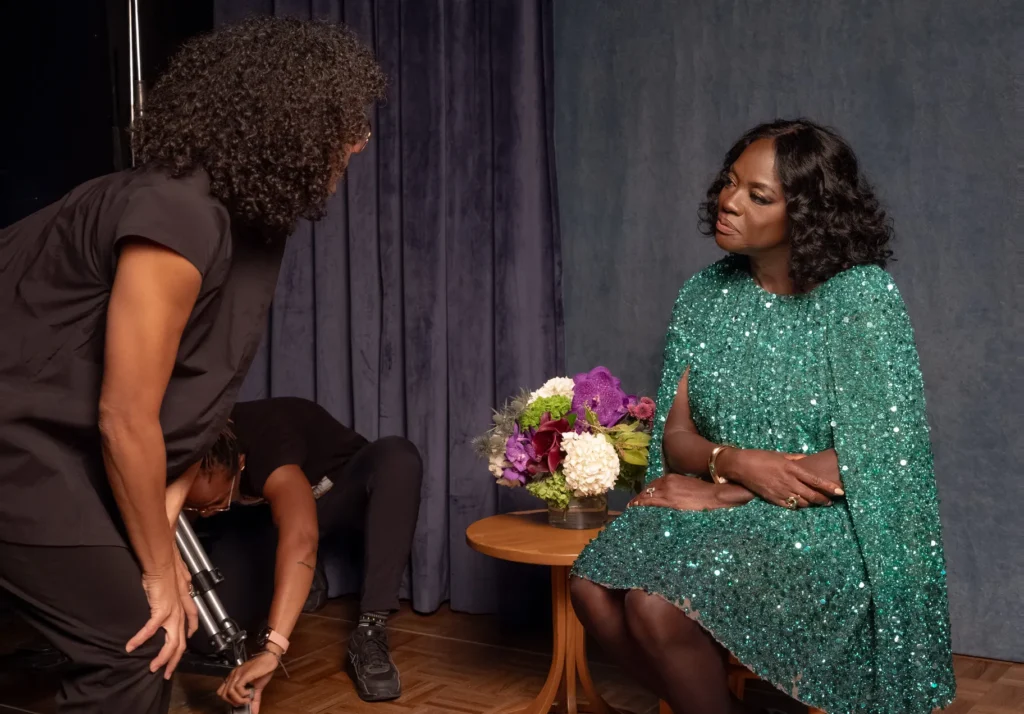
Nia Long also talks about being considered tough to work with: “People think I’m crazy because I like to do my own touch-ups, I know what I want to fix on my face. Why is that a bad thing? … Every woman who’s ever made an impact on this industry has been labeled difficult.”
Hudlin says there’s the challenge of having one’s humanity acknowledged, which includes issues with hair and skin texture that others may not understand or care about, but affect people’s abilities to do their jobs.
He gives the example of Sidney Poitier putting in his contract for In the Heat of the Night: Producers would not cut the scene of him slapping back another character. “‘Nowhere in the world can you change the movie so that I just take a slap,’” Hudlin quotes Poitier.
He continues, “To get that put into his contract, to protect the integrity of his character and who he is as an actor … was an issue. But he knew that the implications of that imagery were so powerful that he had to protect it, his artistry, with legal protection.”
The film also focuses on the Academy Awards, and to this day, Halle Berry remains the only Black woman to win the Best Actress in a Leading Role category (for Monster’s Ball in 2001).
Lynch says it’s important to lay out the history that came before: “So Hattie McDaniel wins the Best Supporting Actress for being a maid in Gone With the Wind. And we’re cast in Hollywood as, at best, supporting. … And for us to push back and find the roles and get the votes … it took until Halle Berry. … And there’s been enormous change. … I think the women would be disappointed if I sat here complaining for them, because they see where things are, but they also see how far we’ve come.”

